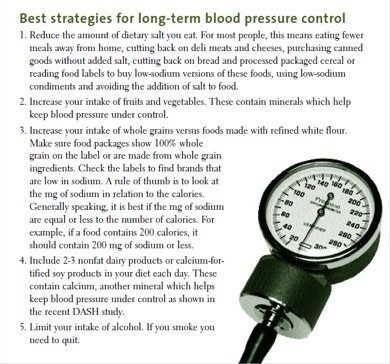Obesity has long been associated with an increased risk of developing both hypertension (HTN) and Type 2 diabetes mellitus (DM).1 On the other hand, intentional weight loss reduces insulin resistance, lowers blood pressure and helps prevent the development of Type 2 diabetes mellitus. Because it is difficult to get most people to lose weight and keep it off for many years, the long-term effects of intentional weight loss have been difficult to study. One study, of obese individuals in Sweden, who underwent gastric surgery in order to lose weight and keep it off is shedding much light on the metabolic effects of long-term intentional weight loss. Its results suggest those who believe hypertension can best be prevented by weight control rather than salt restriction are probably mistaken.
The SOS StudyIn this Swedish Obese Subjects (SOS) study, a group of 346 obese subjects who had gastric bypass surgery were matched with 346 other obese subjects who had a similar body mass index (BMI) and health status. The average BMI of both groups was about 41. After 2 years, the control subjects had remained at their initial weight. Following gastric surgery, weight loss averaged more than 25% of initial body weight. Two years later the surgery group still weighed on average 23% less than their initial body weight. Compared with the control subjects, a 23% maintained weight reduction resulted in a 2.5-fold reduction in the incidence of HTN and a 32-fold reduction in the incidence of Type-2 DM.2 These findings are consistent with most other studies which have also shown a dramatic improvement in insulin resistance and blood sugar control when significant weight is lost over a period of several weeks to several years. Nearly all studies have found a significant drop in blood pressure in hypertensive subjects when weight is intentionally lost and kept off.SOS shows long-term weight loss affects diabetes incidence but not hypertensionMore recently, data after 8 years of follow-up of the SOS study has been published.3 See the chart on the front page. After 8 years, the average maintained weight loss in those who had the gastric surgery was 16% of initial weight or about 45 lbs. The authors concluded, “Whereas this weight reduction had a dramatic effect on the 8-year incidence of diabetes, it had no effect on the 8 year incidence of hypertension. A maintained weight reduction of 16% strongly counteracted the development of diabetes over 8 years but showed no long-term effect on the incidence of hypertension.”The results of this study should be encouraging for those with a family history of Type 2 DM. We can now safely conclude that an overweight or obese individual who losses 10-20% of their body weight and keeps it off will cut his/her risk of developing Type 2 DM at least 5- to 10 -fold. The evidence is also clear that those who have recently been diagnosed with Type-2 DM can reverse a large degree of the insulin resistance and greatly reduce their body’s need for insulin. In many cases this will mean they will not have to go on blood sugar lowering drugs or if they are already on such drugs they may very well be able to get off them if they will lose some weight and keep it off. It appears that Type-2 DM is primarily a disease of excessive calorie intake. If you know the cause of a disease and then eliminate it you can usually prevent and often reverse the disease process.
The bottom lineWhat do we tell people with HTN or a strong family history of this disease? Yes, weight loss will probably lower your BP in the short-term, but if this is all you do it is not likely to prove very effective in the long-term. After all, if staying thin was all you needed to do to prevent hypertension then hypertension should have been uncommon in Japan in the 1950s and 1960s. It was, in fact, more common there back then than in America. This was despite the fact that being overweight was much more common in the US than Japan. Hypertension, unlike Type-2 DM is not primarily a disease of excessive calorie intake. It appears to be mainly a disease of electrolyte imbalance caused primarily by a high-salt diet. If the diet is also low in potassium, calcium, magnesium and perhaps other important nutrients this will magnify the salt toxicity and put a greater nutritional stress on the body to maintain proper electrolyte balance. This is why average BP rises in every society that adds significant salt to their food but in no society that eats only unsalted foods.
By Dr. James J. Kenney, PhD, RD, FACNReferences:1. Ashley FW, Kannel WB. J Chronic Dis 1974;27:103-142. Sjostrom CD, Lissner L, Sjostrom L. Obes Res 1999;7:477-843. Sjoostrom CD, Peltonen M, Wedel H, Sjostrom L. Hypertension 2000;36:20-5



